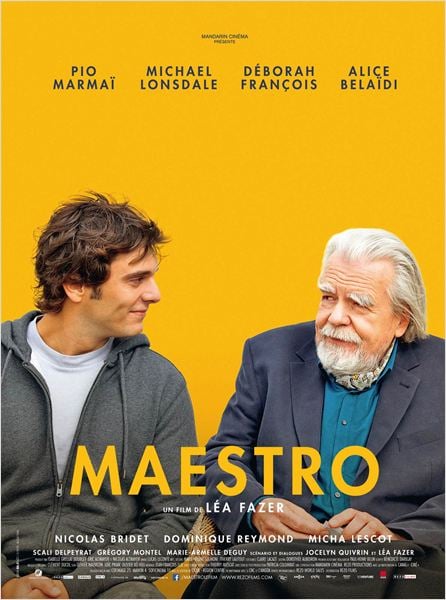
Boris Uvajdov Knigu
Boris Petrovitch Uvarov was born in Ural'sk, in the Russian Empire (now Oral, Kazakhstan), the son of Pyotr P. Uvarov, a state bank employee, and his wife, Aleksandra. He studied biology in the Saint Petersburg State University, graduating in 1910. Write something about yourself. No need to be fancy, just an overview. No Archives Categories.
Contents • • • • • • • • Early years [ ] Boris Godunov was the most noted member of an ancient, now extinct, Russian family of origin (), which came from the to in the early 14th century. This is written in the annals dating from early 17th century. He was descended from the Tatar Prince Chet, who went from the Golden Horde to and founded the in Kostroma. Boris was the son of Feodor Ivanovich Godunov 'Krivoy' ('the one-eyed') (died, c. 1568–1570) and his wife Stepanida Ivanovna. His older brother Vasily died young and without issue.
Godunov's career began at the of. He is mentioned in 1570 for taking part in the campaign as an archer of the guard. The following year he became an – a member of Ivan's personal guard and secret police.

In 1570/1571, Godunov strengthened his position at court by his marriage to, the daughter of, head of the oprichniks. In 1580, the Tsar chose Boris Godunov's sister (1557 – 26 October/23 November 1603) to be the wife of his second son and eventual heir, the fourteen-year-old (1557–1598). On this occasion, Godunov was promoted to the rank of. On 15 November 1581, Godunov was present when the Tsar murdered his own eldest son, the crown prince. Godunov tried to intervene but received blows from the Tsar's sceptre.
The elder Ivan immediately repented, and Godunov rushed to get help for the Tsarevich, who died four days later. Three years later, on his deathbed, Ivan IV appointed a council consisting of Godunov,, and others to guide his son and successor of Russia, who was feeble both in mind and body: 'he took refuge from the dangers of the palace in devotion to religion; and though his people called him a saint, they recognized that he lacked the iron to govern men.' Upon his death, Ivan also left the three-year-old (1581–1591), from his seventh and last marriage. Since the recognized legitimate only his first three marriages, and any offspring thereof, Dmitri (and his mother's family) had no claim to the throne. Still, taking no chances, shortly after Ivan's death the Council had both Dmitri and his mother moved to, some 120 miles north of Moscow. Dmitri died there in 1591 at the age of ten in suspicious circumstances.
As Dmitri's death was announced by the church bell, the people of Uglich rose up in protest against what they suspected was an assassination commissioned by Boris Godunov. Troops were sent and the rebellion was swiftly quelled. Then Boris Godunov ordered the Uglich bell clapper – 'tongue' – to be removed, the bell to be flogged in public and sent to exile in Siberia along with the townspeople who had not been executed. An official commission headed by was sent to determine the cause of death.
The official verdict was that the boy had cut his throat during an epileptic seizure. Ivan's widow claimed that her son had been murdered by Godunov's agents.
Godunov's guilt was never established and shortly thereafter Dmitri's mother was forced to take the veil. Was laid to rest and promptly, though temporarily, forgotten.
Godunov's estate near Moscow At the of Feodor Ivanovich as Tsar Feodor I on 31 May 1584, Boris received honors and riches as a member of the, in which he held the second place during the life of the Tsar's uncle. When Nikita died in 1586, Boris had no serious rival for the regency.
A conspiracy of other boyars and of, sought to break Boris's power by divorcing the Tsar from Godunov's childless sister. The attempt proved unsuccessful, and the conspirators were banished or sent to monasteries. After that, Godunov remained supreme in Russia and he corresponded with foreign princes as their equal.
His policy was generally pacific and always prudent. In 1595, he recovered from some towns lost during the former reign. Five years previously he had defeated a Tatar raid upon Moscow, for which he received the title of, an obsolete dignity even higher than that of Boyar. He supported an anti- faction in the and gave the Khan subsidies in his war against the sultan.
Godunov encouraged to trade with Russia by exempting them from duties. Materinskaya plata msi n1996 manual. He built towns and fortresses along the north-eastern and south-eastern borders of Russia to keep the Tatar and Finnic tribes in order. These included,,, and, as well as other lesser towns. He colonized with scores of new settlements, including. During his rule, the received its, placing it on an equal footing with the ancient Eastern churches and freeing it from the influence of the. This pleased the Tsar, as Feodor took a great interest in church affairs. In Godunov's most important domestic reform, a 1597 decree forbade peasants to transfer from one landowner to another (which they had been free to do each year around in November), thus binding them to the soil.